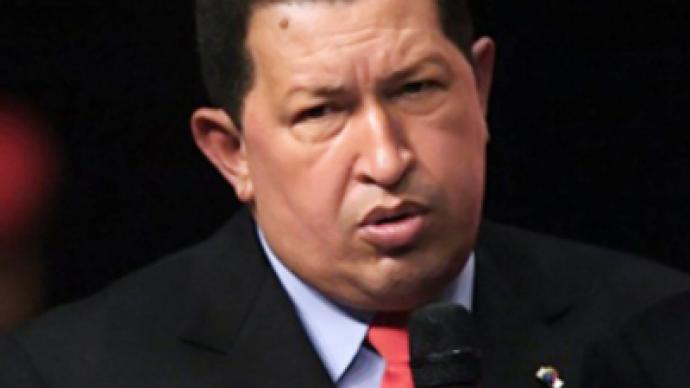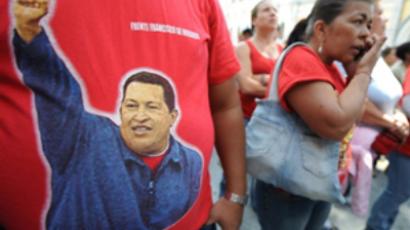Chavez: the phony warmonger

The Venezuelan president talks a good war, but relatively low military spending belies the aggressive rhetoric. His troops have been kicking their heels for 10 years, while rumors spread of more covert tactics.
Russia’s loan of US$2.2bn to Hugo Chavez to buy arms, including battle tanks and an air defense system, has received a predictable response. On Alo Presidente—the Venezuelan leader’s weekly television program—he stressed that the fruits of his recent shopping expedition to Moscow would only bolster its defense capacity. The USA and Colombia, his regional rivals, remain unconvinced.
Venezuela’s abrasive relationship with neighbor Colombia is at a particularly low ebb. The current nadir follows Colombia’s decision to allow US troops use of seven military bases. Venezuela claims this is a threat to its security and it needs the new weapons to protect its oil and gas reserves. “With these rockets, it is going to be very difficult for them [the US] to come and bomb us,” Chavez said.
Neighborly spats developing
Both Venezuela and Colombia are upping their defense expenditure and their use of bellicose language.
In August, speaking at the Union of South American Nations, Chavez warned that around the region: “Winds of war are beginning to blow.”
Venezuela is armed and conflict could potentially be used as a distraction from the crime and economic problems at home. With diplomatic relations partially suspended and arguments fermenting, the stage may be set for armed conflict. Chavez has demanded his armed forces “prepare for war” with Colombia.
Serious challenge to stability
Concern has spread. The US State Department claims Venezuela is “a serious challenge to stability.” Hillary Clinton, US Secretary of State, warned (15th September) of an arms race developing and held Venezuela’s new purchases responsible.
On the right, Chavez’s image is marked by words like “bellicose” and “strongman”, and he is often photographed in army uniform. The former paratrooper put troops on alert and promised to overthrow the interim Honduran president, Roberto Micheletti, after the coup that removed his ally Zelaya.
Inactive armed forces
Behind the aggressive rhetoric, since Chavez’s failed coup in 1992 and his actually accession to power 10 years ago, his armed forces have not once seen active service.
Despite the militaristic language, Venezuela is not a highly militarized country. At US$4bn, Venezuela’s annual military expenditure is roughly half Colombia’s. In terms of military spending as a proportion of GDP, Venezuela’s (1.2%) trails far behind Colombia’s (3.5%) and the Russian Federation’s (3.9%).
The USA leads the Americas in terms of annual military spend in relation to GDP (4%) and the world in terms of total expenditure—160 times greater than Venezuela’s (CIA World Fact Book, 2008).
Colombia, backed by the US, is fighting a war within its own borders with guerillas and drug cartels.
Claims of Farc friendship
Critics claims that, rather than pursuing an overt war, Chavez is more subtle in pursuing his military aims. In March 2008, Colombian troops launched a controversial raid on a Farc camp within the borders of Ecuador—an ally of Venezuela.
The Colombians killed Raul Reyes, a senior Farc leader, and took three laptops. The data allegedly retrieved by the Colombians proved Venezuela had offered to pay US$300 million to the left-wing group. Chavez reacted angrily calling Colombia “a terrorist state” for its incursion into Ecuador and ordered “10 battalions of tanks” to be sent to the Venezuela/Colombia border. Chavez said: “This could be the start of a war in South America.”
Again, despite the language and show of strength, normality quickly returned the border.
Where will the weapons go?
Colombian military believe Venezuela has been arming Farc, and Chavez’s new anti-aircraft weapons could find their way into the hands of the guerillas.
In July, the Colombian Vice President Francisco Santos announced Swedish-made anti-tank missiles had been found at a Farc base. Facing accusations that Venezuela had covertly passed on the weapons, Venezuelan Minister of the Interior and Justice Tareck El Aissami said (17th July): “It’s laughable, it sounds like a cheap film made by the American government.”
Jonathan Stibbs for RT













